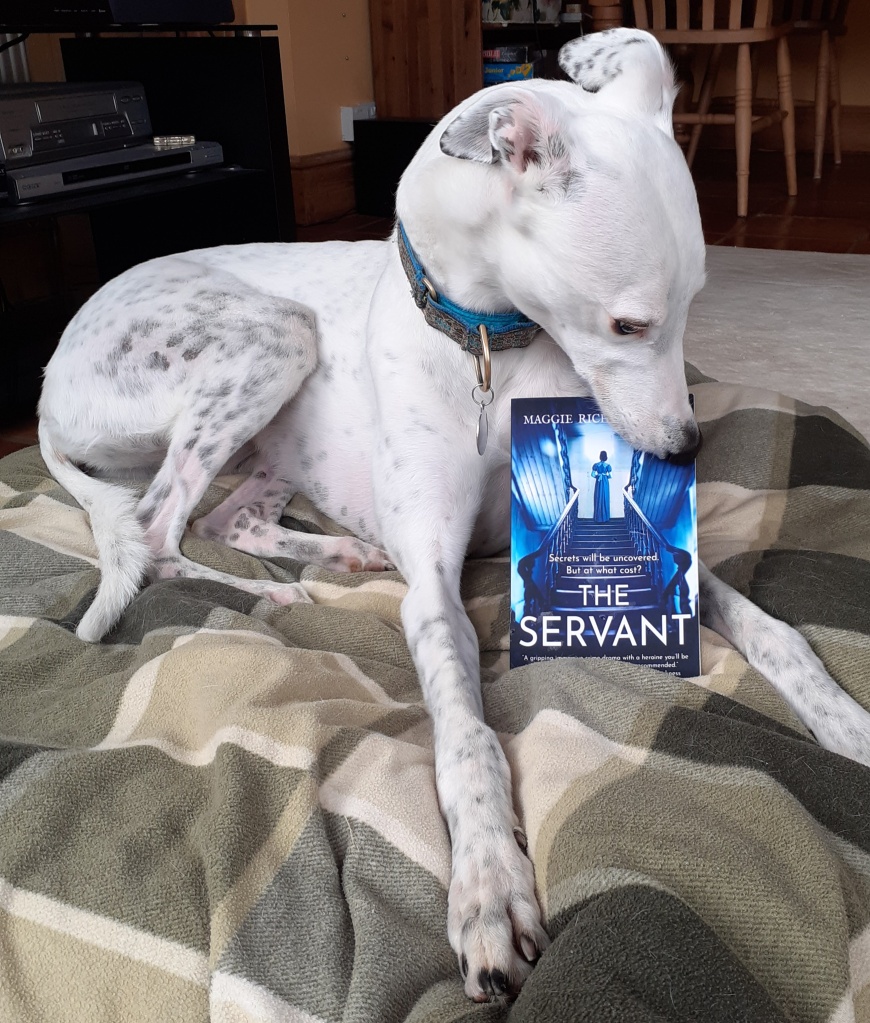Resistance by Halik Kochanski – winner of the 2023 Wolfson History Prize
First, a word from Sarah:
On 14th November last year, I turned on Radio 4’s Today and heard a familiar voice. Halik Kochanski, a fellow dog-walker in my local park, was being interviewed. It turned out she’d just won the Wolfson History Prize. I was stunned – and thrilled. I knew that Max Hastings had called her latest book, ‘The best book about the resistance I have ever read.’ Now she had won the UK’s most prestigious history prize https://www.wolfsonhistoryprize.org.uk/. I messaged my congratulations. Within the hour, she’d written back, ‘It still seems unreal.’ I loved the fact she even replied at such a time.
Halik and I had been bumping into each other with our dogs for a while. We almost always talked about historical writing – though we were in different leagues. She was a scholar published by Penguin whereas I was an unpublished novelist doing historical research for the first time. How, I asked, had she gone about the massive task of uncovering the extent and nature of resistance in occupied Europe for the whole of the Second World War? Her answers prompted me to ask her to share more here.
Halik:
Sarah suggested that I might like to contribute something about the challenges of writing non-fiction – history in my case – so here goes. In the first place you have to be prepared to read a lot of books. It doesn’t need to be the 700-odd I read for Resistance, but it will be a lot. I would suggest starting by reading widely around your chosen subject, and then gradually narrowing your focus. But do not forget that for non-fiction you have to produce footnotes. These are author, title, place and date of publication and page reference. Don’t forget the page references because it will drive you crazy having to spend time hunting down the elusive page reference later.
I always build up my bibliographies from the bibliographies of other books. Finding books can be a problem if they haven’t been published recently and you don’t want to spend a fortune buying them secondhand. I used to borrow a suitcase full of books from the London Library regularly, but membership is expensive. It does, however, give you access to a wide selection of books as well as being a lovely place to work. Alternatively, you may get lucky with the inter-library loan scheme run by local authority libraries when you only have to pay a small fee for a book to be sent by another library. It helps to know which library you want the book from. Finally, there is the British Library which has everything printed in this country and is free to use. Don’t worry about spending hours in the library making notes. Nowadays everyone takes photos of books and documents using a phone or camera. If you need to use archives, then check whether their catalogue is online. Most archives are only open a few days a week and most need notice before you come in because the material is stored off site.
Having done the research now comes the difficult part – the thinking. First you need to decide how to divide the material into chapters. That should not be too difficult. What I find takes time but is time worth spending, is the preparation for writing each chapter. What are you trying to communicate? I always divide my notes into sub-sections. If I get that right then the chapter would almost write itself. I find that the best thinking happens away from the computer, such as when walking the dog or doing the gardening. It has always amused me when proofreading my books to remember where I was when a particular phrase or idea came to me.
Then there is the writing itself. Do not start with the first chapter. That is the most difficult one to write because it’s the first the reader will see. Instead, choose a chapter which excites you so that you can set the tone of your writing and communicate your enjoyment to the reader. You are human so don’t expect to be able to write every day. Some days you just can’t form a decent sentence and when you think you have, you will hit all the wrong keys on the keyboard. If you, as I did, find you have written something as clumsy as ‘the demonstrations demonstrated…’, you know it’s a bad day and the writing won’t come. Other days will make up for it.
Finally, don’t be intimidated by the challenge, just get on with it! If you don’t enjoy the work needed for your book, then don’t do it, and choose something else to occupy yourself. As I confessed to the audience when receiving the Wolfson History Prize, I nearly gave up once I realised the sheer scale of the challenge I had set myself. In fact, I burned out so badly writing Resistance that I swore that I would never write another book. However, I just can’t trust myself because I am working on a new book, but this one will be much shorter and less deeply researched and I’m enjoying the process again.
Halik & Sarah – just after one of the dogs had tried to steal a sausage!

























